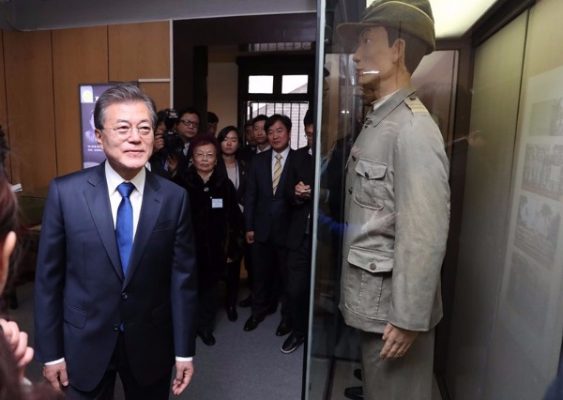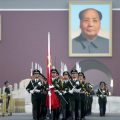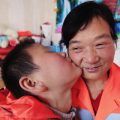
The trip President Moon Jae-in of the Republic of Korea made to Chongqing on Saturday underscores the great importance he attaches to the collaborative fight by China and the ROK against Japan during World War II, experts say.
On Saturday evening, Moon wrapped up his first state visit to China, the first three days of which he spent in Beijing.
Chongqing, which served as China’s wartime capital, was also the home of the exiled Korean government as Korea fought alongside China in the struggle against Japan from 1939 to 1945.
The city is home to the Museum of the Provisional Government of the Republic of Korea, China’s largest historical site tied to the peninsula.
Moon is the first ROK president to visit the Chongqing museum while in office.
“The six years in Chongqing represent the most important, active and glorious period of the Korean provisional government’s independence fight in China,” said Xing Jun, deputy director of the Chongqing Municipal Culture Commission.
“This historical site has an irreplaceable role in enhancing the communications and friendship between the Chinese people and people on the Korean Peninsula,” Xing said.
The site is now hidden among the skyscrapers in the city’s downtown. There are five brick-and-wood buildings housing photos and historical displays.
On Saturday morning, Moon placed white flowers and stood in a silent tribute at the statue of Kim Gu (1876-1949), the last president of the Korean provisional government, who is often referred to as the “father of the nation” in the ROK.
Moon toured the site and had tea with 10 descendants of Korean independence activists, four from Seoul and six from Chongqing.
He wrote in the museum’s visitors registry: “The Provisional Government of the Republic of Korea forms our roots, and this site is our spiritual home.”
Earlier, in Beijing, Moon said that Koreans, who were also victims of Japanese invasion, can feel the pain of the unspeakable tragedy of the Nanjing Massacre, in which more than 300,000 Chinese were killed.
The Korean provisional government was formed in Shanghai on April 13, 1919, shortly after the Samil Movement declared Korean independence from Japanese rule.
With the help of the Chinese government, the exiled Koreans moved many times – to Hangzhou, Zhenjiang, Nanjing, Changsha, Guangzhou and Liuzhou – before finally settling in Chongqing in 1939.
In Chongqing, the provisional government worked with both the Communist and Kuomintang parties, and issued a provisional Constitution and guidelines for founding a nation.


